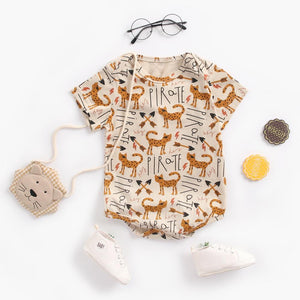
What You Need to Know About A Postpartum Nursing Diagnosis
You had a baby, now what?
New mamas (and their partners, for that matter) are often in a state of shock when it comes time to leave the hospital. They stare in wonder and fear at a nursing staff ready to bid them goodbye, stifling the urge to shout back at them “you are really going to let us leave here and be in charge of this tiny human being?”
Yes, they are. They have ushered hundreds if not thousands of new parents out the door; they have seen this deer-in-headlights look before.
But understanding more about postpartum issues BEFORE you have your baby may help you feel better prepared when the time comes (and yes, okay, it will scare you a little, too).
The bottom line is your body is going through all kinds of upheaval, and you won’t be back to normal the second childbirth is over. So stop looking at photos of a perfectly coiffed Princess Kate leaving the hospital in a designer dress and thinking this will be you. It won’t, and that’s okay. You might leave the hospital in pajamas, and you might stay in them for another two weeks. No one is judging you (and heck, if they are, who cares anyway? You. Had. A. Baby.)
So in the spirit of getting you ready, Mama, here are six things you need to know about what happens after you’ve had your little one and things you can expect in a postpartum diagnosis.
1. Breastfeeding Issues
Let’s start with the big one: breastfeeding does not come easily or naturally to every new mother. It’s hard (albeit rewarding) work, and you may experience
-engorged breasts and pain while feeding
-latching problems
-sore, cracked, or even bleeding nipples (ouch! We told you it could be scary.)
Make sure you have the contact information for your hospital’s lactation consultant before leaving and don’t hesitate to reach out to her if you are having difficulties once you get home. These women are angels walking among us, and they can help you with feeding issues when you are at your wit’s end. Even the most modest mamas among us will whip out a breast in front of a lactation consultant if it means the difference between a painful feeding and a tolerable one.
Pro tip: let your nipples air dry after feeding and if they are sore to the touch you can also use a lanolin cream.
2. Bleeding
Be prepared for the fact that you may experience bleeding and spotting for weeks after childbirth, so you want to be well stocked with sanitary pads. Forego tampon use (which can introduce bacteria as you heal) and if you find yourself soaking sanitary pads within an hour, or are passing clots, call your doctor right away.
3. Swelling
Look, we don’t just mean puffy eyes here (though you will probably have those, too): your vagina is going to swell. And it may stay this way for weeks. This is normal in postpartum recovery, and take heart in the fact that it won’t stay this way forever. Tearing is common (unfortunately) so you may have some stitches as well, but they usually dissolve 7 to 10 days after childbirth.
4. Night Sweats

Picture it: you finally get the opportunity for a few hours of shut-eye while baby is sleeping and you want NOTHING to interfere with it. But you wake up in a puddle and discover you’re now having night sweats…? Before you worry that childbirth somehow suddenly propelled you into early menopause, rest assured that this is also normal in postpartum recovery. It may last anywhere from 2 to 6 weeks, and you can do your best to minimize the symptoms by drinking plenty of water and sleeping in cool pajamas. Throw your partner an extra blanket because you may want to crank up the AC as well! Remember, any weight gain, imbalanced nutrition, change in heart rate, and anxiety, are just a few things that can affect your body temperature. And chances are you’re experiencing them all!
5. Constipation
Relieving your bladder and bowels is not particularly pleasant after pregnancy for a number of reasons (I’m looking at you, postpartum hemorrhage), and constipation is one of the worst. It is a common problem for new mamas, so be prepared to:
-Drink plenty of water (this will actually help with breastfeeding as well)
-Get as much rest as you can (we know this is tricky with a newborn!)
-Eat prunes or food with bran
And if all else fails you may want to try a laxative, but discuss this with your doctor first.
6. Depression
While “postpartum” is used to describe a variety of things that occur after childbirth, “depression” is a word many people think of first. And this is indicative of how common it is for women to experience some form of it.
Postpartum depression is a scary thing: mamas feel an overwhelming sense of guilt for not being “happy” after the arrival of their little ones, or not feeling some overwhelming maternal joy. And because of that guilt, women are often scared to discuss it, with their family and friends and (more importantly) their doctors. But there are plenty of helpful health resources available to women, whether they need help managing a mild bout of depression or, in some cases, a much more serious one.
Final Thoughts
Check out the National Institute of Mental Health for more information on postpartum depression and resources available for mothers and their families. There is no shame in seeking help for depression, whether it’s postpartum or not, and you may find that therapy, medication, or a combination of both will get you back on your feet.
Just like no two pregnancies are exactly alike, no two postpartum nursing care stories are exactly alike. Your experience may seem like a walk in the park compared to your sister’s, or you may be distraught to discover other new mothers around you are “bouncing back” much sooner than you. The best thing you can do for yourself is to focus on what is in your control, whether that means drinking enough water each day or napping while the baby naps (laundry be damned). Speaking of laundry, when someone offers to help, SAY YES. If your neighbor wants to start a “meal train,” or your mother-in-law offers to send her housekeeper over, or your best friend says “let me stay with the baby for an hour and I want you to go get a pedicure,” say yes to all of it. Don’t try to be a superhero, Mama. Recognize that you can use all the help you can get right now, and take people up on it.
Read Next:
A Moms Battle With Postpartum Depression



